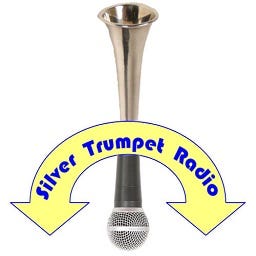Forty-five years ago, archaeologists made a remarkable discovery right next to the Old City of Jerusalem. A thirteen-year-old boy, working with the archaeologists, discovered that there was a hidden room under one of the caves in which the archaeologists were working. In this room, the archaeologists discovered close to about 1 000 ancient utensils, ornaments and other items. Part of this discovery were two miniature silver scrolls on which recognisable words were written in ancient Hebrew. It took three years to unroll the scrolls with the help of modern technology and decipher the weathered text written on them. It was determined that the two silver scrolls dated from the 6th century before Messiah – more or less the time when the exile to Bavel began. Some letters were no longer visible or legible at all. But finally, the team of analysts was able to make sense of the text. On one scroll, there was, among other things, a short introduction and three short sentences: The first sentence contained three words; the second sentence five words and the third sentence seven words. The second word of each sentence was YHWH. If you translate this into Afrikaans or English, then YHWH is the first word of each sentence. The third sentence concluded with an ancient form of the word ‘shalom’. If you placed the modern text of B’midbar 6:24-26 next to this unrolled ancient text, the oldest available text of the priestly blessing (or more specifically: of any part of Scripture ever discovered) unfolded before your eyes – so old that the prophet Jeremiah might have seen it with his own eyes!
Much has been said and written about the priestly blessing of B’midbar 6:24-26. It is interesting that the three basic phrases of the blessing consist of 15 Hebrew words (3 + 5 + 7) and 60 Hebrew letters (15 + 20 + 25). Thus the number THREE is very prominent: 15 can be seen as 3 X 5, and 60 can be seen as 3 X 20. The priestly blessing, with its three major components, is not only a description of the way in which Yahweh blesses us, it is also a summary of the main reasons we have to bless or praise Him. The first component speaks of ‘blessing’ and ‘keep’. The word ‘keep’ is the same word that is usually used with Yahweh’s commandments: He gave us His commandments so that we could keep them in our hearts and in our lifestyle. Therefore, the first component of the priestly blessing is an encouragement for us to praise Yahweh for the gift of his Torah, his commandments – something that we can keep in our hearts, and which ultimately preserves us, in spirit, soul, and body.
The second component speaks of “face shining upon” and “showing favour.” However, our lives are in any case permeated with His favor! How much favor has He not already shown us? It is out of favour that He called us to Him. It is out of favour that He has made the brokenness in our lives whole again, and continues to make it whole every day. It is out of favour that He has opened our eyes to truths that have changed our entire lives. It is out of favour that He sent His Son to teach us the deepest meaning of salvation, forgiveness, and reconciliation. It is out of favour that we can celebrate set-apart festivals and rejoice anew in the meaning of Yeshua's resurrection, and its implications for us. So, with this second component, we want to do more than just receive blessings, we also want to express and sing blessings and praise, to Him who has poured out so many different forms of favour into our lives.
The third component speaks of “lifting up the face” and “giving peace”. With “lifting up the face”, one already has a feeling that the third component goes a step further and deeper than the second component. In the second component it is about Yahweh, the great and untouchable Elohim, who sometimes makes his face shine upon us. In itself this is something that one can hardly imagine – something that one cannot simply experience, and then turn around as if it were something ordinary. In Divrei HaYamim Bet 5 it says that on one occasion, because of the glory of Yahweh, the priests could not stand to perform their service. And on another occasion, in Divrei HaYamim Bet 7, they could not even enter the temple, because of the glory of Yahweh.
Why not set aside your hobbies and other tasks, cancel your plans for a cold evening out and join John Wahl this evening at 18:00 for an Afrikaans discussion on this blessing we use every Shabbat and many other occasions.
Mid-week repeat: day 4 (wednesday) 18 june / Mid-week herhaling: dag 4 (woensdag) 18 junie 2025
This entire program is repeated tomorrow morning at 09:00 / Hierdie volledige program word môreoggend om 09:00 herhaal
Please note our early morning teachings / Let asseblief op ons vroegoggend leringe
All times indicated are SAST / Alle tye word aangedui volgens SAST
18:00: Die priesterlike seën – John Wahl
18:35: Oorwinning (10): Woord en waarheid – Gerrie Coetzee
19:45: Parashat Sh’lach l’cha – Leo du Toit
----------------------------------------------------
Tomorrow morning:
06:00: Language of Redemption: Chet – Silver Trumpet In-house Teachings
----------------------------------------------------
Contact / Kontak: e-mail/e-pos, Facebook, Telegram, Whatsapp.
Please visit our website for more information. Besoek ons webwerf vir meer inligting.
Broadcast links/Uitsaaiskakels:
Our website player is the best way to listen, but there are other platforms to enjoy Silver Trumpet Radio:
Radio.co (our service provider)
radio.net microsite or the free radio.net app by scanning the QR-code
Zeno microsite or the free Zeno app for Android or iPhone





